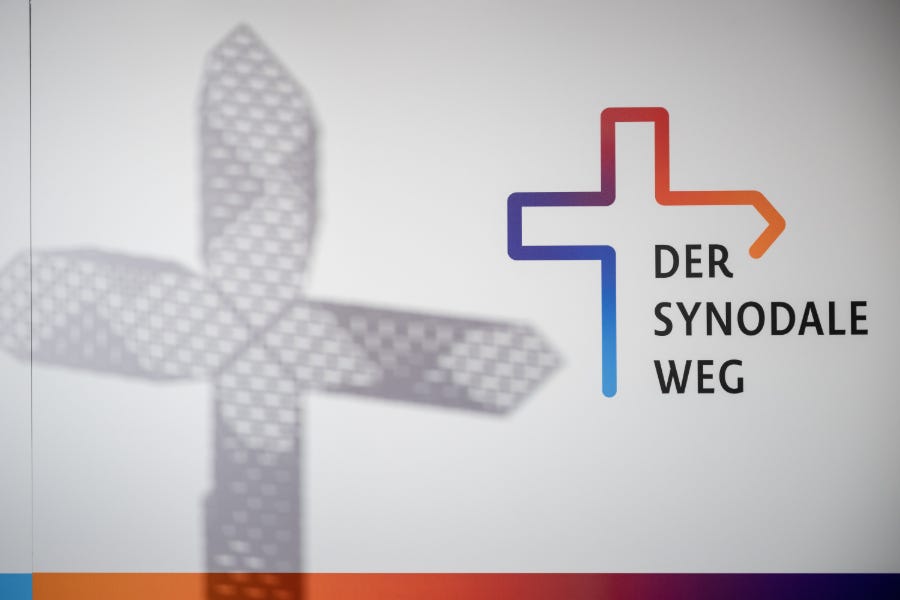Is Pope Leo facing a synodal way litmus test?
Description
As the former prefect of the Vatican’s Dicastery for Bishops, Pope Leo XIV will be used to looking at intimidatingly long lists of episcopal vacancies.
Among the many dioceses on the current list is Eichstätt. The diocese in Bavaria, southern Germany, fell vacant June 8 when Bishop Gregor Maria Hanke resigned at the age of 70, citing “inner fatigue” and misgivings about the country’s “synodal way.”
The synodal way brought together Germany’s bishops and select lay people between 2019 and 2023 to discuss far-reaching changes to Catholic teaching and practice. When it ended, with a hefty 150 pages of resolutions, Germany’s 27 diocesan bishops were asked to join a temporary “synodal committee,” whose main task is to establish a permanent body of bishops and lay people with extensive powers over the Church in Germany.
Hanke was one of four diocesan bishops who refused to take part in either the synodal committee or the national synodal body, potentially undermining the synodal way project.
The appointment of Hanke’s successor is eagerly anticipated in Germany because of what it might say about the new pope’s stance on the synodal way.
But the Eichstätt diocese is one of the country’s smallest in terms of Catholic population. So why is it being seen as a litmus test for Pope Leo? And what are the pope’s options?
Does Leo like the synodal way?
Shortly after Pope Leo XIV walked onto the balcony overlooking St. Peter’s Square in May, a debate began in Germany. Was the first U.S.-born pope a supporter of the synodal way or a critic?
The evidence was scant and contradictory, but opinions were plentiful.
The facts can be quickly summarized. When Cardinal Robert Francis Prevost, the future pope, was prefect of the bishops’ dicastery, he was one of the signatories of a February 2024 Vatican letter asking the German bishops to delay a vote on the statutes of the synodal committee ahead of talks in Rome.
He took part in the talks with German bishops in March and June 2024, which resulted in an agreement that the bishops would not take any further steps toward establishing a permanent national synodal body without the Vatican’s approval.
His predecessor at the Dicastery for Bishops, Cardinal Marc Ouellet, had called unsuccessfully for a moratorium on the synodal way. But Prevost’s position seemed more ambiguous. Did he help to rein in the synodal way project or did he ensure its survival?
Ludwig Ring-Eifel, the chief reporter of German Catholic news agency KNA, suggested in May that Munich’s Cardinal Reinhard Marx had backed Leo’s election ahead of the conclave.
“Marx gave Prevost credit for having saved the German synodal way from canonical extinction with a compromise formula, whereas Prevost’s predecessor Marc Ouellet had gone on a hard confrontation course with the German Catholics’ reform project,” Ring-Eifel wrote.
After Leo XIV’s election, the two leading synodal way figures — lay leader Irme Stetter-Karp and bishops’ conference chairman Bishop Georg Bätzing — highlighted Leo’s commitment to a “synodal Church,” expressed in his first public address. They argued that his election gave a new momentum to efforts to establish a national synodal body in Germany.
Others weren’t so sure. Essen’s Bishop Franz-Josef Overbeck described Leo XIV as “reserved” concerning the issues discussed in Germany.
“We are really in a different world to the one he experienced in Peru,” Overbeck said, referring to the pope’s years as an Augustinian missionary priest and later bishop in the Latin American country.
The German-born Bishop Norbert Strotmann, who served as general secretary of Peru’s bishops’ conference from 2017 to 2023, said he did not expect Pope Leo “to respond to regional reform requests.”
“He has experienced — for example, with regard to the bishops’ conference in his home country of the USA — how difficult it is to bring conservative and progressive currents together,” he commented. “I can’t imagine him taking steps that would cost him the support of a quarter or a third of the faithful.”
The interpretations, then, have been inconsistent — and they will be until Pope Leo either voices an opinion publicly or takes actions that clearly express his views.
Why is Eichstätt seen as a litmus test?
In a June 24 <a href="https://www.herder.de/communio/kol


 </picture>
</picture>


